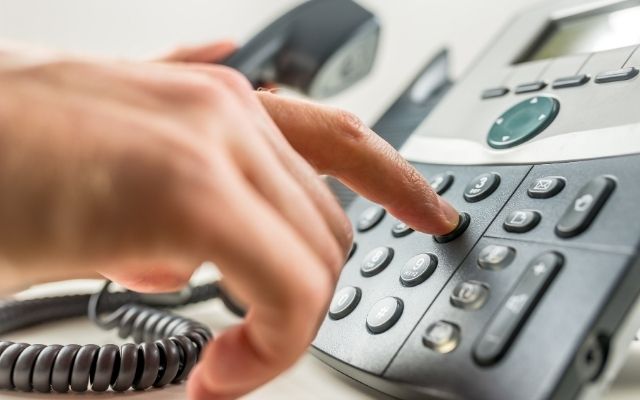
Did you know that great landlords attract great tenants? You see, landlording is a service industry. You are providing services that a tenant pays for. So, as a landlord, it’s in your best interest to treat your tenants as customers.
Broadly speaking, landlords take up to forty hours to find a replacement tenant after eviction or other exit. The leasing process includes doing certain things such as property advertisement, apartment showing, tenant screening, and lease signing.
However, you’d be able to avoid all that if you rent to a good tenant. Good tenants pay rent on time, rent longer, and are generally low maintenance. In the course of a year, a good tenant can save you an enormous amount of time.
Getting and keeping a great tenant isn’t rocket science. All you have to do is be a good landlord. If you view your tenant as your customer, you’ll do everything to ensure they are satisfied with your services.
So, what exactly do you need to do to become one? Well, below are 9 tips to help you in that regard.
Tip #1: Help your tenant to adjust quickly.
Oftentimes, a new tenant will be moving in from a different town. So, to help them settle down quickly, try giving them an insider’s look of the town. You can do so, for instance, by giving them a printout of the map of the area.
Additionally, consider writing your new tenants a welcome letter. Doing this can be a great start to building a solid relationship with them. In the letter, make sure to mention how happy you are that they are your tenants.

You can also use that opportunity to let them know of any special instructions there may be. For example, contact info for utilities, or when trash pickup is usually done.
Lastly, consider stocking their bathrooms. Moving can be an extremely stressful event. As a matter of fact, some studies have ranked it up high together with other life stressors, such as divorce. Stocking their bathrooms with toilet paper, a soap dispenser, and an all-purpose cleaner can be a great gesture.
Tip #2: Look and be professional.
One of the first step to doing that is by dressing neatly. This is especially critical during the early beginnings of a tenancy. By looking clean and tidy, tenants will usually assume that you’re responsible and will take your rental business seriously.
But, of course, as the months go by and tenants get to know you, this will become less and less important.
Next, observe the terms of the lease or rental agreement keenly. When your tenant has a problem, always check what is outlined in the lease agreement. Remember, the lease is a contractual agreement. If you do anything contrary to its stipulations, there might be repercussions.
Tip #3: Handle disagreements/conflicts like the pro that you are.
Disagreements between landlords and tenants aren’t uncommon. If you ever find yourself in one, make sure to remain calm. The last thing you’d want is appearing on a YouTube video titled, Crazy Landlord.
As a general rule of thumb, never swear or yell at your tenant. Also, please note that using threats or withholding some of your tenant’s rights is illegal. Remember that your tenant is like your customer.
Tip #4: Be accessible to your tenants.
Your tenants will ultimately want to communicate with you. As such, make sure that you offer them access to all your communication channels, such as email and phone.

Ideally, make sure you state which channel should be used for urgent matters and which one is open for non-urgent matters. In the same breath, make sure to also state what problems fall under urgent matters and which ones do not.
What’s more, be sure to respond quickly when a tenant calls or emails you. Remember, quick business etiquette calls for a quick response.
Tip #5: Go through the lease with them.
This is something that you want to do even before the tenant sets foot on your property. Before the lease signing, make sure to take the tenant through each and every term. Communicate about what rights and responsibilities both parties have.
For example, when it comes to rent-related terms, make sure they understand everything. From the rent amount to when it falls due to acceptable payment methods to late fees, if any.
Doing this will help get everything out in the open right from the beginning.
Tip #6: Always notify your tenant of an intended entry beforehand.
Tenants have a right to privacy. Basically, this means that you cannot barge in on them unannounced. In Alberta, for instance, landlords are required by the Residential Tenancies Act to furnish their tenants with a 24 hours’ notice beforehand.
Also, the reason for the entry must be within reason. For example, to do repairs, property showings, or to inspect the property.
Tip #7: Treat all tenants fairly and equally.
Discriminating against tenants on the basis of a protected class is illegal.

According to the Alberta Human Rights Act, it’s illegal to discriminate a tenant on the basis of their race, color, ancestry, physical disability, gender expression, gender identity, religious beliefs, place of origin, sexual orientation, source of income, family status, and marital status.
Tip #8: Stay organized.
Good organization skills are key to running a successful investment property. That’s because you’ll be able to achieve greater freedom, increase profitability, and stay on legal grounds.
The best way to keep organized is by doing so electronically. And for good reason. It is more efficient, protects data, is secure, and is easily accessible.
Tip #9: Be mindful of online reviews.
Sites such as Yelp and ReviewMyLandlord allow tenants to leave reviews of landlords. So, be sure to keep a keen eye on any potential reviews that may be posted there by previous tenants.
If you notice a bad review, make sure to respond respectfully. And if you have great tenants, encourage them to leave a good review.
There you have it. 9 tips on how you can become a great landlord. Essentially, being a great landlord means being able to keep your tenants happy. And as the saying goes, of which you’ve probably heard before, “To be happy, make others happy.” If you’re looking for further help and support as a property owner, contact us at Real Canadian Property Management today.